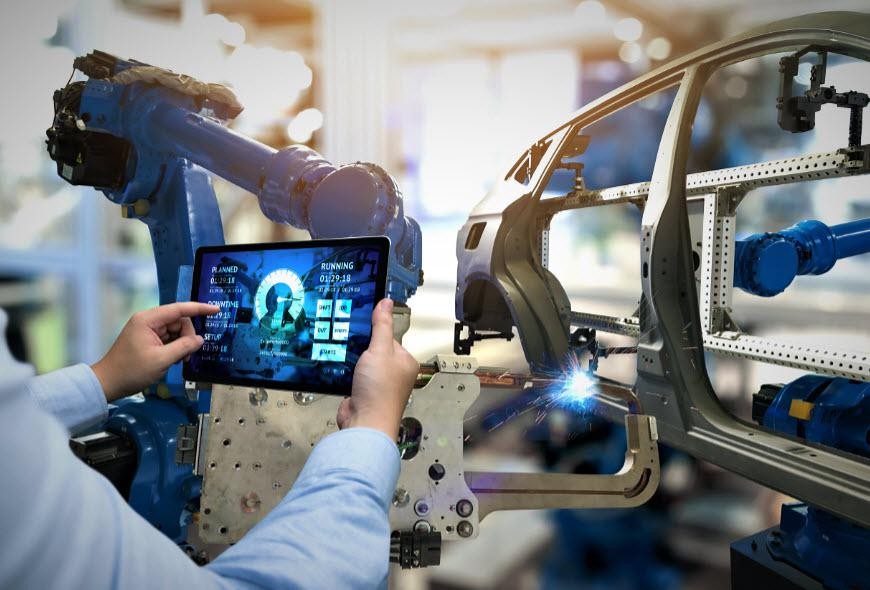In today’s rapidly evolving technology landscape, automated quality logs with AI are transforming how industries approach quality assurance (QA). As businesses strive for higher efficiency and accuracy, the integration of Artificial Intelligence (AI) into quality logging processes is becoming increasingly crucial. This article delves into the significant role AI plays in revolutionizing industry QA and the benefits it brings to various sectors.

The Importance of Quality Assurance in Industries
Quality Assurance is the backbone of any industry, ensuring products meet required standards and specifications. With the advent of AI, QA processes have become more streamlined and efficient, reducing the margin for error and improving overall product quality. By leveraging automated quality logs, companies can now monitor and optimize their operations continuously.
Challenges in Traditional Quality Logging
Traditional quality logging methods often involve manual processes, which can be time-consuming and prone to human error. This not only hampers productivity but also affects the accuracy of the data collected. The need for a more efficient system has paved the way for AI-driven solutions.
How Automated Quality Logs with AI Work
AI-powered quality logs function by using machine learning algorithms to analyze data in real-time. This allows for immediate detection of anomalies and potential defects, enabling quicker response times and reduced downtime. These logs provide valuable insights that can be used to enhance product quality and operational efficiency.
Components of AI in Quality Logging
- Data Collection: Sensors and IoT devices gather data from various stages of production.
- Data Analysis: AI algorithms process this data to identify patterns and deviations.
- Reporting: Automated systems generate comprehensive reports for decision-making.
Benefits of Using AI in Quality Logs
The integration of AI in quality logging offers numerous advantages. One of the primary benefits is increased accuracy in data collection and analysis. AI systems can process vast amounts of data faster than any human, ensuring a higher level of precision. Additionally, AI can predict potential issues before they occur, allowing for proactive measures to be taken.
Cost Reduction
By automating quality logs, companies can significantly reduce operational costs. The need for manual inspections is minimized, freeing up human resources for more strategic tasks. This efficiency translates into cost savings, allowing businesses to allocate resources more effectively.
Enhanced Decision-Making
With AI-generated insights, decision-makers are equipped with reliable data that supports informed decision-making. This leads to improved strategies and processes, ultimately enhancing overall business performance.
Applications of AI in Quality Control
AI’s application in quality control spans various industries, including manufacturing, healthcare, and automotive. For instance, in manufacturing, AI can be used to monitor production lines and ensure that each product meets quality standards. In healthcare, AI aids in analyzing patient data to improve diagnostic accuracy.
Case Study: AI in Manufacturing
In the manufacturing sector, companies like Qualitech are utilizing AI to [optimize production processes](https://qualitech.ai/ai-in-manufacturing-quality/). By implementing AI-driven quality logs, manufacturers can detect defects earlier in the production process, reducing waste and rework.
Case Study: AI in Healthcare
In healthcare, AI technologies are being used to enhance quality control in diagnostics and treatment plans. AI algorithms analyze patient data to identify patterns that may indicate potential health issues, aiding in early intervention and improved patient outcomes.
Future of Automated Quality Logs with AI
The future of automated quality logs with AI is promising, with continuous advancements in technology paving the way for even more sophisticated systems. As AI becomes more integrated into industrial processes, we can expect further enhancements in quality assurance practices.
Emerging Trends
Several emerging trends are shaping the future of AI in quality logging. These include the use of advanced machine learning techniques, the integration of AI with other technologies like blockchain, and the increasing focus on sustainability and ethical AI practices.
Impact on Workforce
While the automation of quality logs with AI may lead to workforce changes, it also presents opportunities for upskilling and reskilling employees. As businesses adopt AI technology, there will be a growing demand for skilled professionals who can manage and optimize these systems.
Conclusion
The integration of automated quality logs with AI is transforming industry QA, offering numerous benefits in terms of accuracy, efficiency, and cost reduction. As technology continues to evolve, the potential for AI to further enhance quality assurance processes is immense. By embracing these advancements, industries can achieve higher standards of product quality and operational excellence.

FAQs
What are automated quality logs?
Automated quality logs are systems that use AI to monitor and analyze production data in real-time, identifying defects and ensuring products meet quality standards.
How does AI improve quality assurance?
AI improves quality assurance by increasing data accuracy, reducing human error, and enabling proactive measures through predictive analytics.
What industries benefit from AI in quality control?
Industries such as manufacturing, healthcare, and automotive benefit from AI in quality control, as it enhances accuracy, efficiency, and cost-effectiveness.
For more information, you can explore the [Role of AI in Quality Control](https://www.techtarget.com/searcherp/tip/AI-use-cases-for-quality-control-in-manufacturing) on TechTarget.
This article contains affiliate links. We may earn a commission at no extra cost to you.

